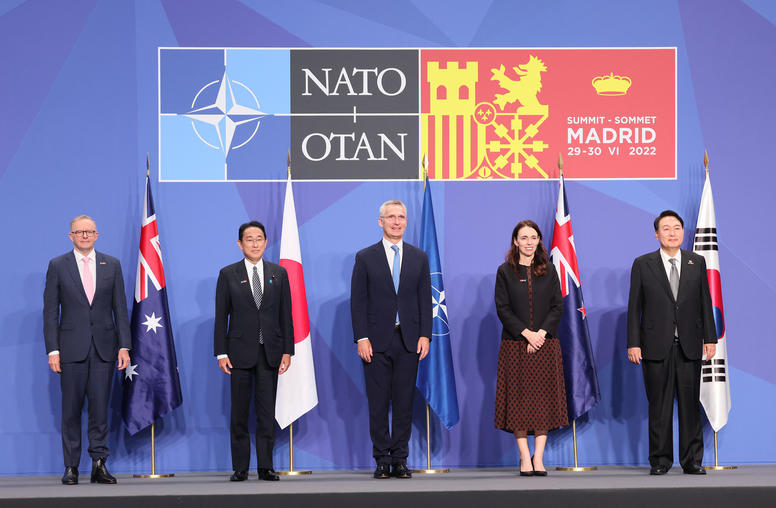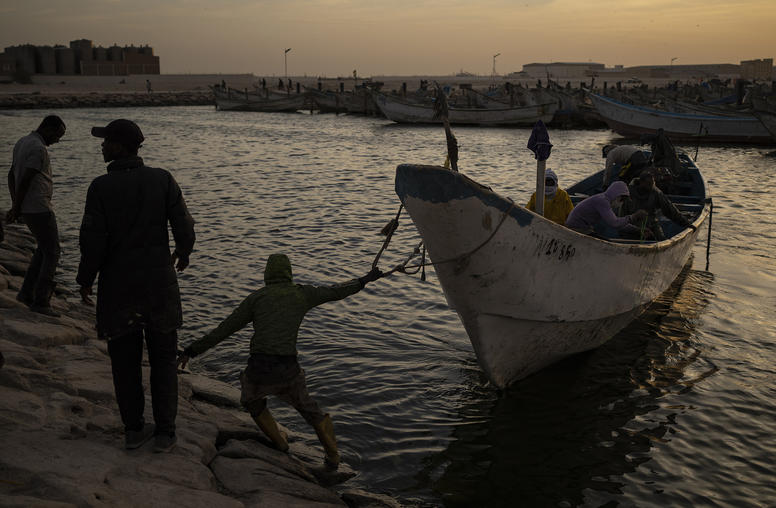When Civilian Assistance and the Military Cross Paths
How U.S. Agencies and Nonprofits Can Collaborate to Reduce Violent Conflict
In areas of the world affected by violent conflict, the U.S. military and civilian government agencies are working more closely with non-governmental and international organizations to achieve peace and security. While coordination has improved, better integration is still needed to increase the success of these efforts. On September 14, the Conflict Prevention and Resolution Forum at the U.S. Institute of Peace held a discussion of how professionals from across the diverse civilian-military community can work together to achieve better results and reduce violent conflict.
Partnerships between civilian and military communities are not new. But they come with a broad set of challenges. How, for example, do peacebuilding and development professionals sustain the perception of neutrality when they engage with the military? How do NGOs ensure that engagement with government allies doesn’t undermine their efforts to promote peace and equality? What strategies can military planners and their interagency peers employ to better adapt to one another’s culture, systems and professional beliefs?
This event of the Conflict Prevention and Resolution Forum (CPRF) expanded on the work of USIP’s Civilian-Military Working Group and the USIP Interorganizational Tabletop Exercise (ITX), a tool that brings civilian and military planners together to work on shared challenges. Building on key tenets that emerged from these discussions, panelists offered lessons from efforts to increase and improve civilian and military engagement in peacebuilding on the ground. Panelists focused particularly on strengthening alliances, aligning priorities and achieving common goals.
Continue the conversation on Twitter with #CPRF.
Confirmed Speakers
Stéphane Bonamy
Deputy Head of Regional Delegation for the United States & Canada, International Committee of the Red Cross
Robert Jenkins
Acting Assistant Administrator for the U.S. Agency for International Development’s Bureau for Democracy, Conflict, and Humanitarian Assistance (DCHA)
Alina L. Romanowski
Acting Principal Deputy Coordinator for Counterterrorism, U.S. Department of State
James A. Schear
Senior Political Scientist, the RAND Corporation
Monica Shephard
Vice Director for Joint Force Development, Joint Force Development Directorate J7, Joint Chiefs of Staff
Carla Koppell, Opening Remarks
Vice President, Applied Conflict Transformation, U.S Institute of Peace
Michael Shipler, Moderator
Regional Director, Asia, Search for Common Ground
The Conflict Prevention and Resolution Forum (CPRF)
Since 1999, the Conflict Prevention and Resolution Forum has provided a monthly platform in Washington for highlighting innovative and constructive methods of conflict resolution. CPRF’s goals are to (1) provide information from a wide variety of perspectives; (2) explore possible solutions to complex conflicts; and (3) provide a secure venue for stakeholders from various disciplines to engage in cross-sector and multi-track problem-solving. The CPRF is traditionally hosted at SAIS and organized by the Conflict Management Program in conjunction with Search for Common Ground and is co-sponsored by a consortium of organizations that specialize in conflict resolution and/or public policy formulation.
Forum Principals:
Search For Common Ground
Alliance for Peacebuilding
George Mason University – School for Conflict Analysis and Resolution
Georgetown University – Conflict Resolution Program
Johns Hopkins University – Nitze School of Advanced International Studies Conflict Management Program
Partners Global
U.S. Institute of Peace



